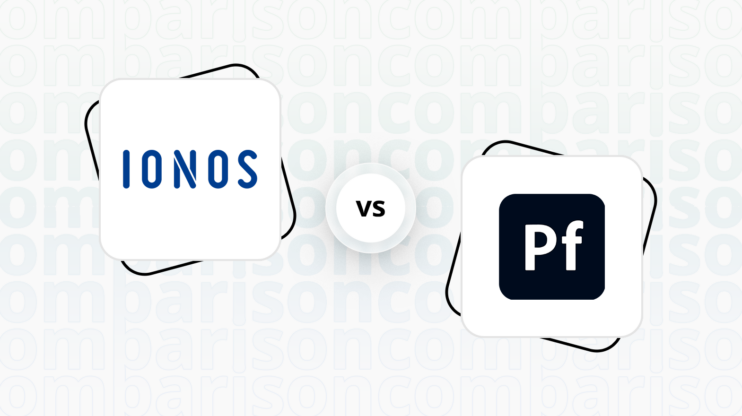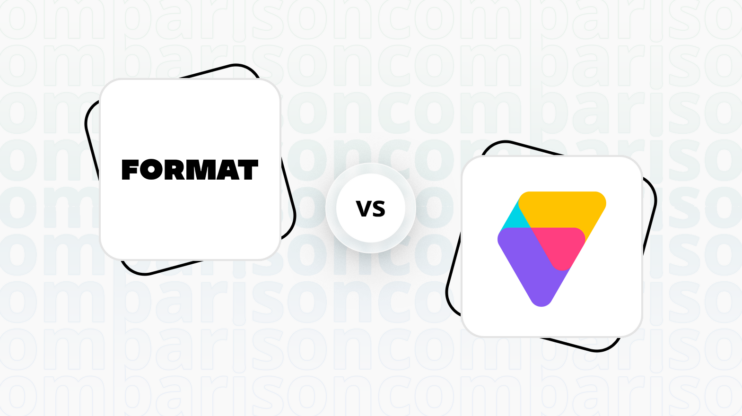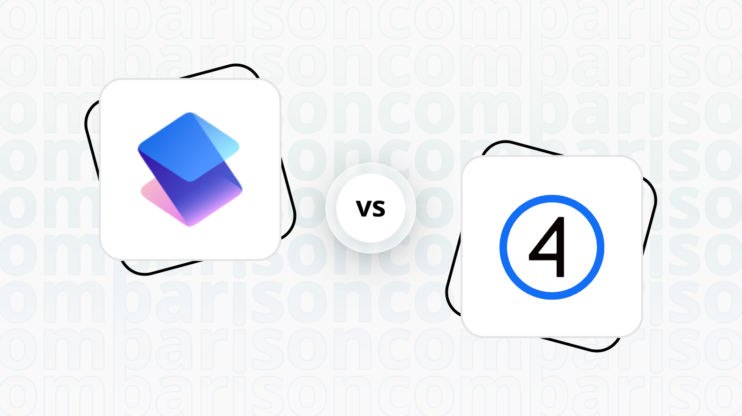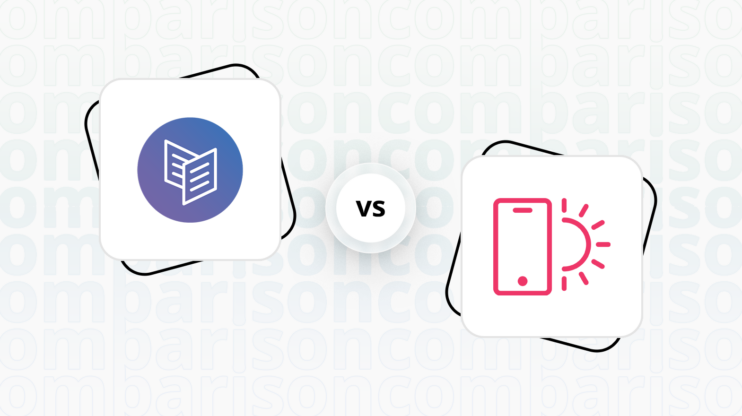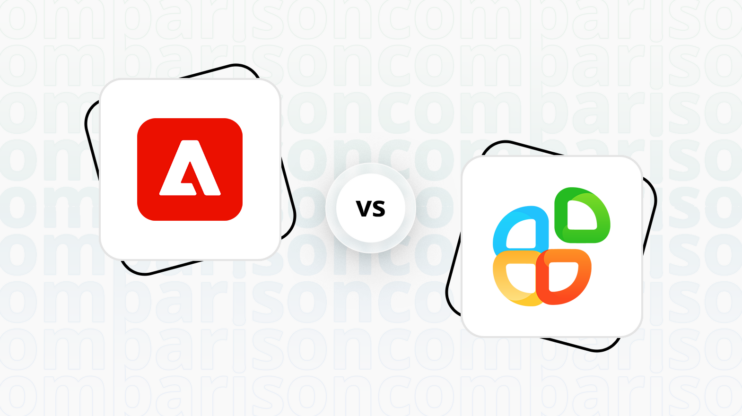Final verdict
Shopify and Mobirise cater to different needs and audiences, each excelling in their respective domains.
-
Shopify (Overall Grade: 8.1/10)
is a robust ecommerce platform designed for businesses looking to scale their online presence. It offers comprehensive tools for product management, payment processing, and order fulfillment. Shopify’s advanced marketing features, extensive app integrations, and superior security make it the ideal choice for serious online stores. When comparing Shopify vs Mobirise, Shopify stands out for its professional ecommerce capabilities and scalability. -
Mobirise (Overall Grade: 5.9/10)
is an offline website builder that excels in ease of use and quick website creation. It is perfect for non-tech savvy users and small to medium-sized projects like portfolios, landing pages, and small business sites. Mobirise’s drag-and-drop interface and customizable templates make it easy to design visually appealing websites without coding. However, in the Shopify vs Mobirise comparison, Mobirise falls short in advanced ecommerce features and scalability, making it less suitable for larger, more complex online stores.

|

|
|
|---|---|---|
|
Design functionalities & templates |
8.2 |
8.0 |
|
Ease of use |
7.5 |
8.8 |
|
Ecommerce |
9.2 |
5.4 |
|
Website Editors |
7.9 |
7.8 |
|
Product testing options |
8.1 |
5.0 |
|
Price |
8.2 |
8.6 |
|
Hosting quality |
9.0 |
2.0 |
|
Website speed optimization |
7.8 |
5.0 |
|
Plugins and integrations |
8.7 |
6.6 |
|
Marketing features |
8.8 |
5.1 |
|
Customer support |
8.6 |
4.7 |
|
Security |
9.0 |
6.6 |
|
AI capabilities |
7.9 |
3.8 |
|
User Management |
6.5 |
2.0 |
Best for ecommerce
 9.2
9.2
 5.4
5.4
Verdict
: Shopify is the superior choice for ecommerce, offering a robust set of features for growing businesses, while Mobirise is more suited for small-scale operations with basic ecommerce needs.
-
Shopify
: Known for its comprehensive ecommerce features, Shopify is ideal for businesses with
growth in mind. It supports a wide range of ecommerce functions, making it the go-to platform for those looking to scale. Shopify offers advanced inventory management, multi-channel selling, and detailed analytics, making it a powerful tool for serious ecommerce ventures. Its score for ecommerce is 9.2. -
Mobirise
: Mobirise provides a straightforward, user-friendly platform for small-scale ecommerce websites. It emphasizes ease of use with its drag-and-drop functionality and responsive design templates. However, it lacks the advanced features necessary for scaling online stores, such as extensive product sorting and comprehensive SEO options. Its score for ecommerce is 5.4.
Best for informational & business websites
 6.8
6.8
 7.4
7.4
Verdict
: When it comes to creating informational and business websites, Mobirise has a slight edge over Shopify due to its user-friendly interface and offline capabilities, making it ideal for non-tech savvy users.
-
Shopify
: Shopify, with a score of 6.8, is primarily an ecommerce platform. While it offers professional and sleek templates, its focus on ecommerce functionalities can make it feel overly complex for simple informational sites. The platform is robust but may present a steeper learning curve for those not focused on online retail. -
Mobirise
: Mobirise scores 7.4 and is designed for ease of use, making it a great choice for creating small to medium-sized informational websites. Its drag-and-drop interface and offline capabilities allow users to build visually appealing, mobile-responsive sites without any coding knowledge. For those comparing Shopify vs Mobirise, Mobirise stands out for its simplicity and user-friendly design, especially for non-tech savvy users.
Detailed comparison
Design functionalities & templates
Design FunctionalitiesRepresents how well each platform allows for creative design and customization of websites.Score Components:
- Template Variety (30%): Range and quality of design templates.
- Customization (30%): Flexibility and options for design alterations.
- User Interface (20%): Ease and intuitiveness of the design process.
- Responsiveness (10%): Adaptability to different devices and screen sizes.
- Innovation (10%): Unique design features and tools.
 8.2
8.2
 8.0
8.0
🏆
Winner: Shopify.
If you’re looking for a platform that offers more professional and ecommerce-focused templates, Shopify is the preferred choice.
Shopify’s templates are sleek and professional, ideal for ecommerce sites. They offer a sophisticated look with a focus on online stores. While the free template selection is not large, Shopify’s premium theme store provides a variety of industry-specific options, offering advanced features for a strong brand presence.
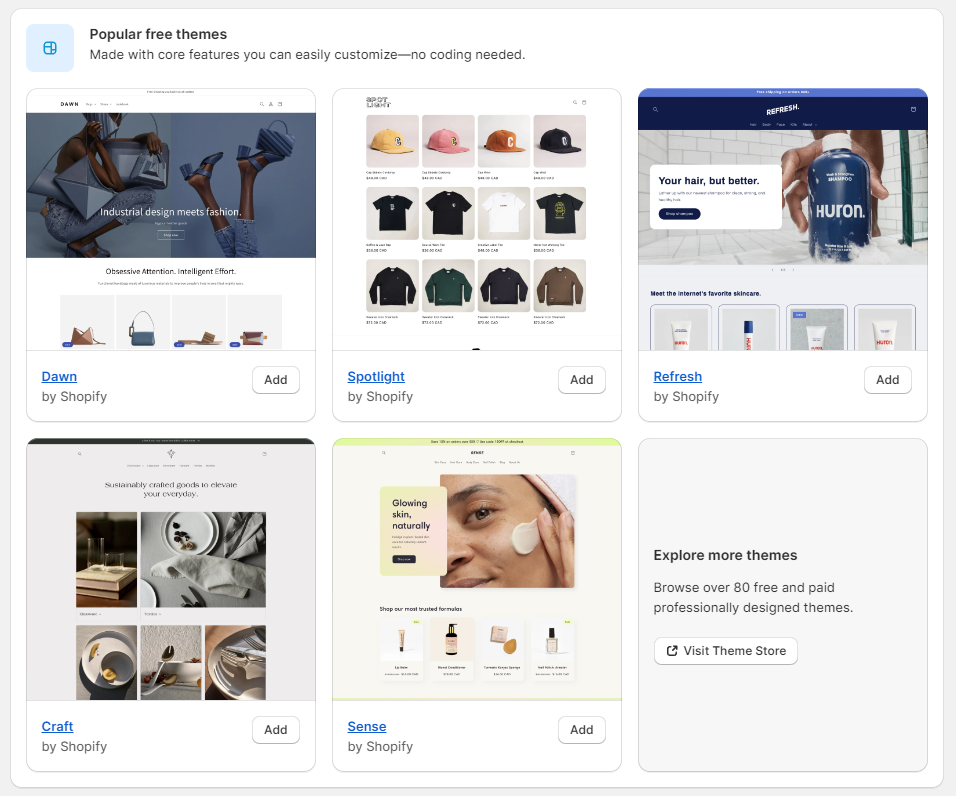
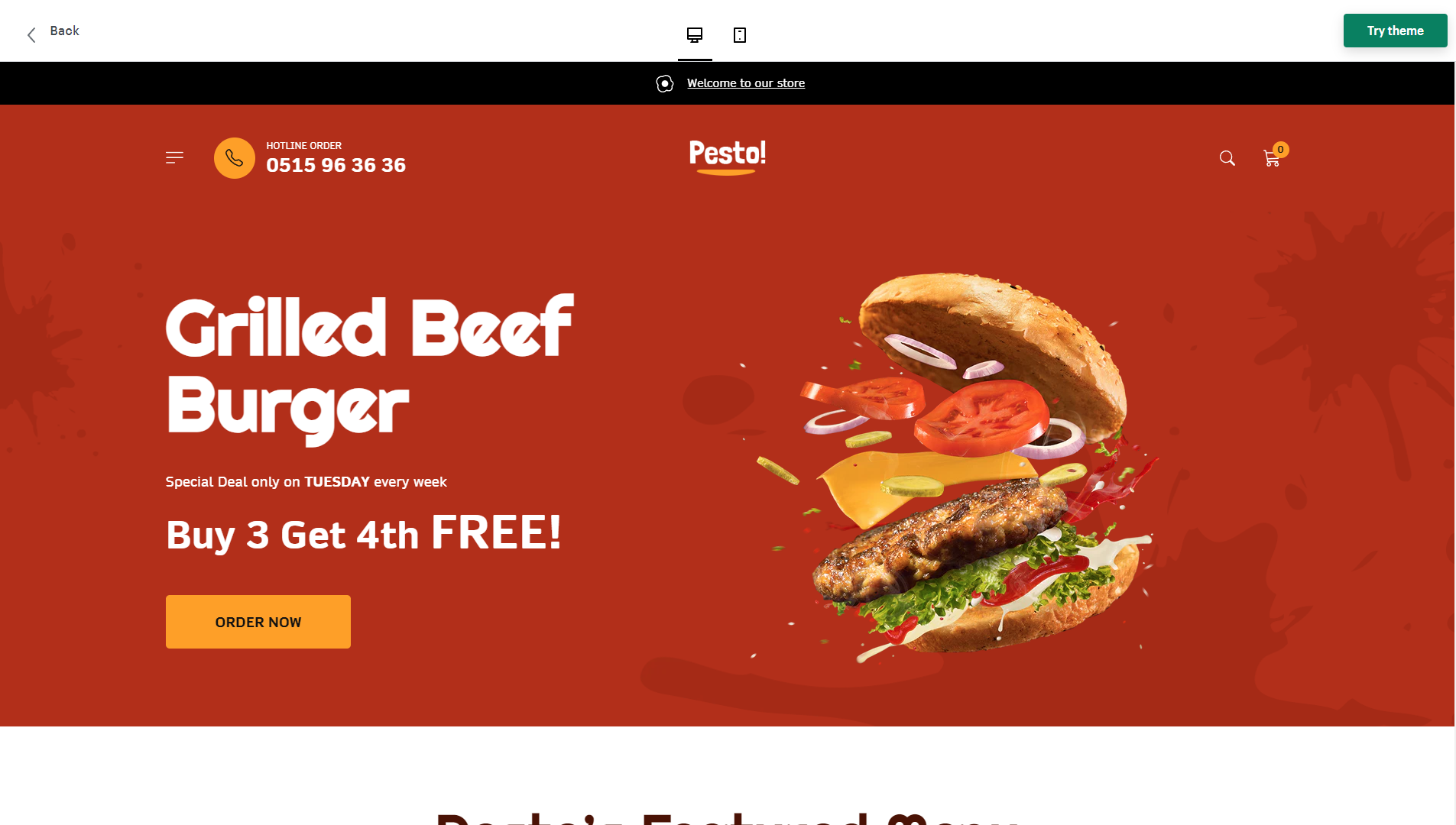
Compared to Shopify, Mobirise offers a wide variety of templates and designs for users looking to create websites. With over 9,500 free HTML website templates available, Mobirise provides a range of visually stunning layouts that are mobile-responsive, ensuring websites look great on all devices. These templates are designed with clean code structures for easy customization and feature fast load times, beneficial for both user experience and search engine optimization (SEO).
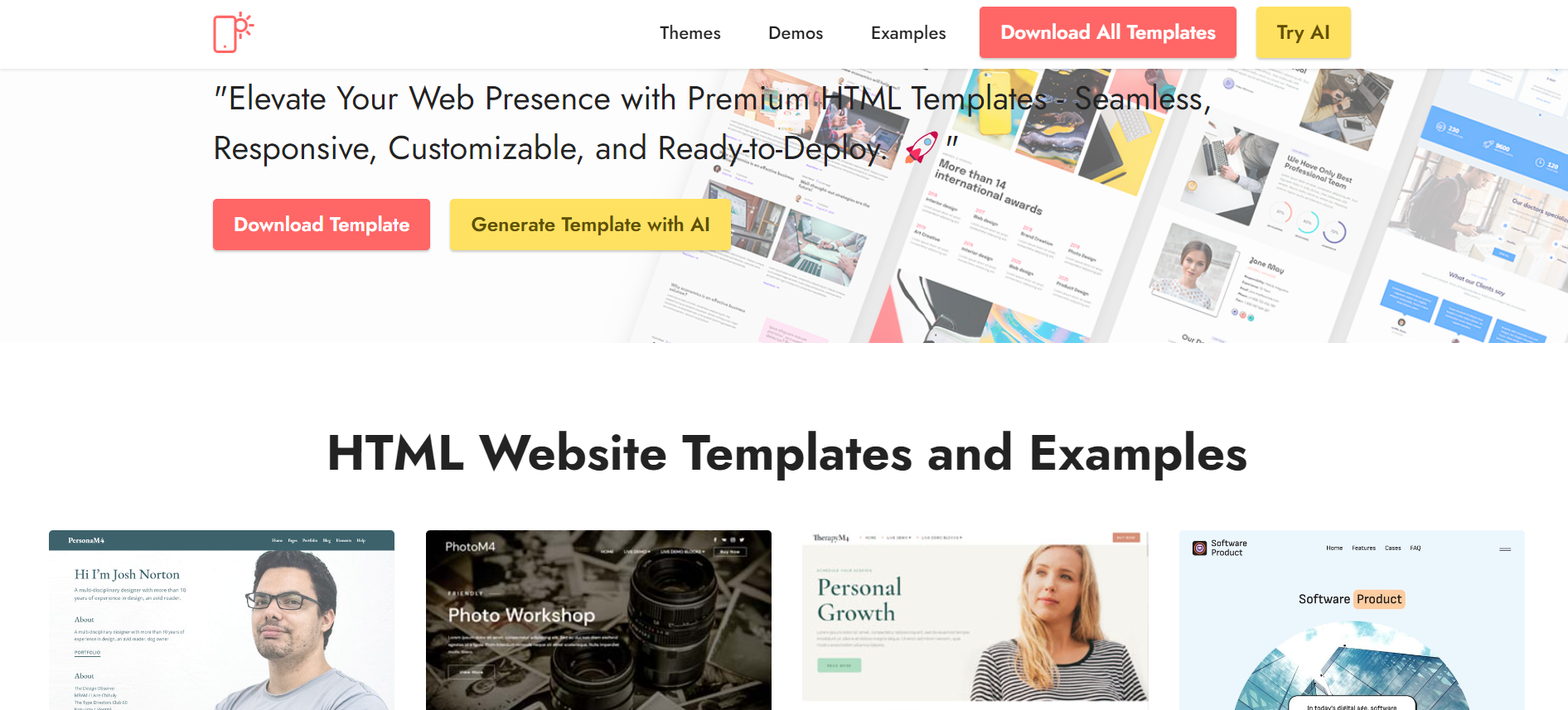
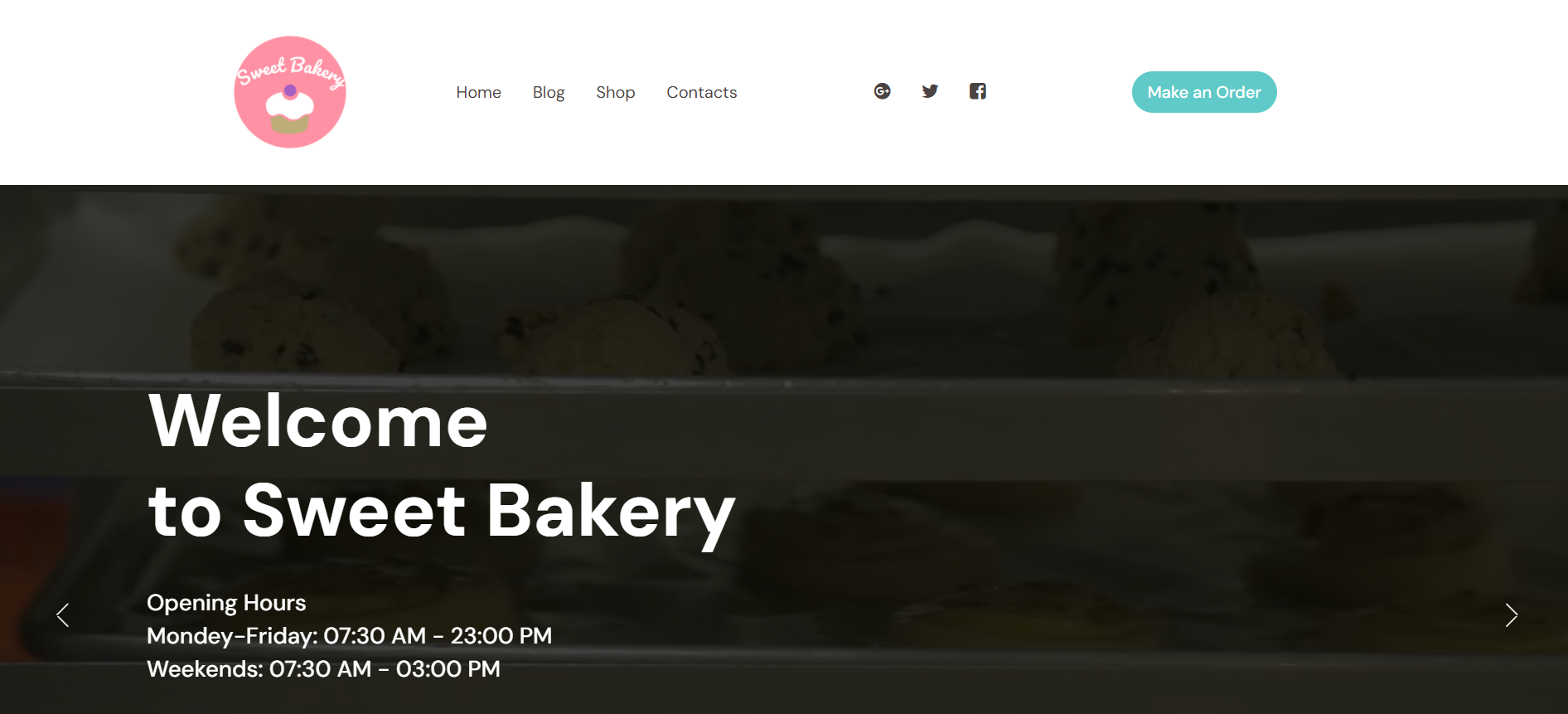
Get a head start on website creation with AI
Create a custom website tailored to your business needs 10X faster with 10Web AI Website Builder!
Ease of use
Ease of useReflects the platform’s overall user-friendliness.Score
Components:
- Learning curve (40%): Quickness and ease of getting started.
- Interface design (30%): Simplicity and intuitiveness of layout.
- User guidance (20%): Quality of tutorials and support.
- Flexibility (10%): Adaptability to various user skills.
 7.5
7.5
 8.8
8.8
🏆 Winner: Mobirise
. Scoring an impressive 8.8, Mobirise is renowned for its user-friendly interface and drag-and-drop design, making it exceptionally easy for beginners to create websites without needing to code. Shopify, with a score of 7.5, offers a robust platform but with a steeper learning curve, especially for those new to ecommerce. If ease of use is a priority, Mobirise is the clear winner in this category.
Learning Resources
🏆 Winner: Tie
. Both Shopify and Mobirise offer extensive learning resources and active community forums, making it easier for users to learn and adapt to the platforms.
For ecommerce
EcommerceMeasures the platform’s effectiveness in supporting online business activities.Score Components:
- Ecommerce themes and templates (20%): Variety and design of templates.
- Product management (25%): Ease of managing and organizing products.
- Payment options (25%): Variety and convenience of payment methods.
- Ecommerce features (20%): Features for managing an ecommerce store.
- Integration (10%): Compatibility with external e-commerce tools and services.
 9.2
9.2
 5.4
5.4
Shopify is a leading ecommerce platform that provides a comprehensive set of features for online businesses. It offers tools for creating and customizing online stores, managing products, processing payments, and handling order fulfillment. On the other hand, Mobirise offers a straightforward, user-friendly platform for small-scale ecommerce websites, emphasizing ease of use with its drag-and-drop functionality and responsive design templates. However, it falls short for more complex ecommerce needs, lacking advanced features like extensive product sorting and comprehensive SEO options necessary for scaling online stores.

|

|
|
|---|---|---|
|
Ecommerce themes and templates |
8.2 |
6.0 |
|
Product page customization |
8.5 |
6.5 |
|
Payment processing and commissions |
8.8 |
7.0 |
|
POS capabilities |
8.1 |
4.0 |
|
Payment gateways |
9.5 |
6.0 |
|
Product numbers |
9.0 |
5.0 |
|
Additional ecommerce features |
9.1 |
5.5 |
Shopify ecommerce features:
- Comprehensive store builder
- Shopify Payments and other gateways
- Advanced inventory management
- Multi-channel selling
- Abandoned cart recovery
- Detailed analytics and reporting
Mobirise ecommerce features:
- Stripe and PayPal integration
- Marketing Tools
Ecommerce themes & templates
Shopify offers about 150 modern responsive themes for creating a virtual storefront, ensuring a good look on both desktop and mobile devices. While some themes are free, others cost between $170 to $380. In contrast, Mobirise provides templates equipped with essential features like product catalogs and payment processing, emphasizing a mobile-first design approach.
Product page customization
Shopify has a limit of three options per product, totaling 100 unique variations. This limit may not pose a significant constraint, and it is suggested that for products with numerous options, creating separate listings on Shopify can be a more manageable approach. While Shopify offers titles, descriptions, and image galleries with zoom effects, customization options like adding ribbons, size charts, and wishlists are not as straightforward. However, Shopify distinguishes itself with additional features through its extensive library of extra apps, offering functionalities like reviews, Facebook stores, eBay item importers, and a unique Augmented Reality feature for an enhanced customer experience.
On the other hand, Mobirise offers customizable HTML eCommerce templates that allow for easy modification of product pages to suit various online store needs. These templates are designed to be highly adaptable, enabling changes in colors, fonts, and layouts, thereby helping users align the design with their brand identity. However, Mobirise’s ecommerce solutions are best suited for small to medium-sized enterprises, given its simplicity and the scale of features offered.
Payment processing
When it comes to payment processing, Shopify offers payments with typical charges of
2.9% + 30¢
per online transaction on basic plans, and lower fees for higher-tier plans. However, it adds extra fees for using other payment gateways. Shopify Payments is Shopify’s own payment processing gateway. It allows merchants to accept credit card payments directly on their store without having to integrate third-party payment providers. This simplifies the payment process, reduces transaction fees, and streamlines the handling of finances.
In contrast, Mobirise allows for the integration of external payment gateways into websites without directly charging commissions for transactions. Users have shown interest in a variety of payment options, including SquareUp, Stripe, and PayPal, but adding these requires manual integration or the use of paid extensions. While there’s no direct mention of built-in POS capabilities, Mobirise offers flexibility to integrate various third-party payment services, relying on the user’s ability to embed these into their site.
Website Editors
Website EditorsEvaluates the platforms’ website building and editing capabilities.Score Components:
- Customization tools (40%): Range and power of editing features.
- Editor usability (30%): User experience within the editor.
- Design flexibility (20%): Freedom in layout and design changes.
- Update and maintenance ease (10%): Simplicity of updating and maintaining the site.
 7.9
7.9
 7.8
7.8
🏆
Winner: Shopify
. Shopify, with a score of 7.9, excels in providing a streamlined, ecommerce-focused editing experience. It’s particularly beneficial for users who prioritize efficient management of online stores. The editor is straightforward, making it easy to add products, manage inventory, and set up payment methods. Shopify’s editor is optimized for sales and business growth, with built-in tools specifically designed for ecommerce businesses.
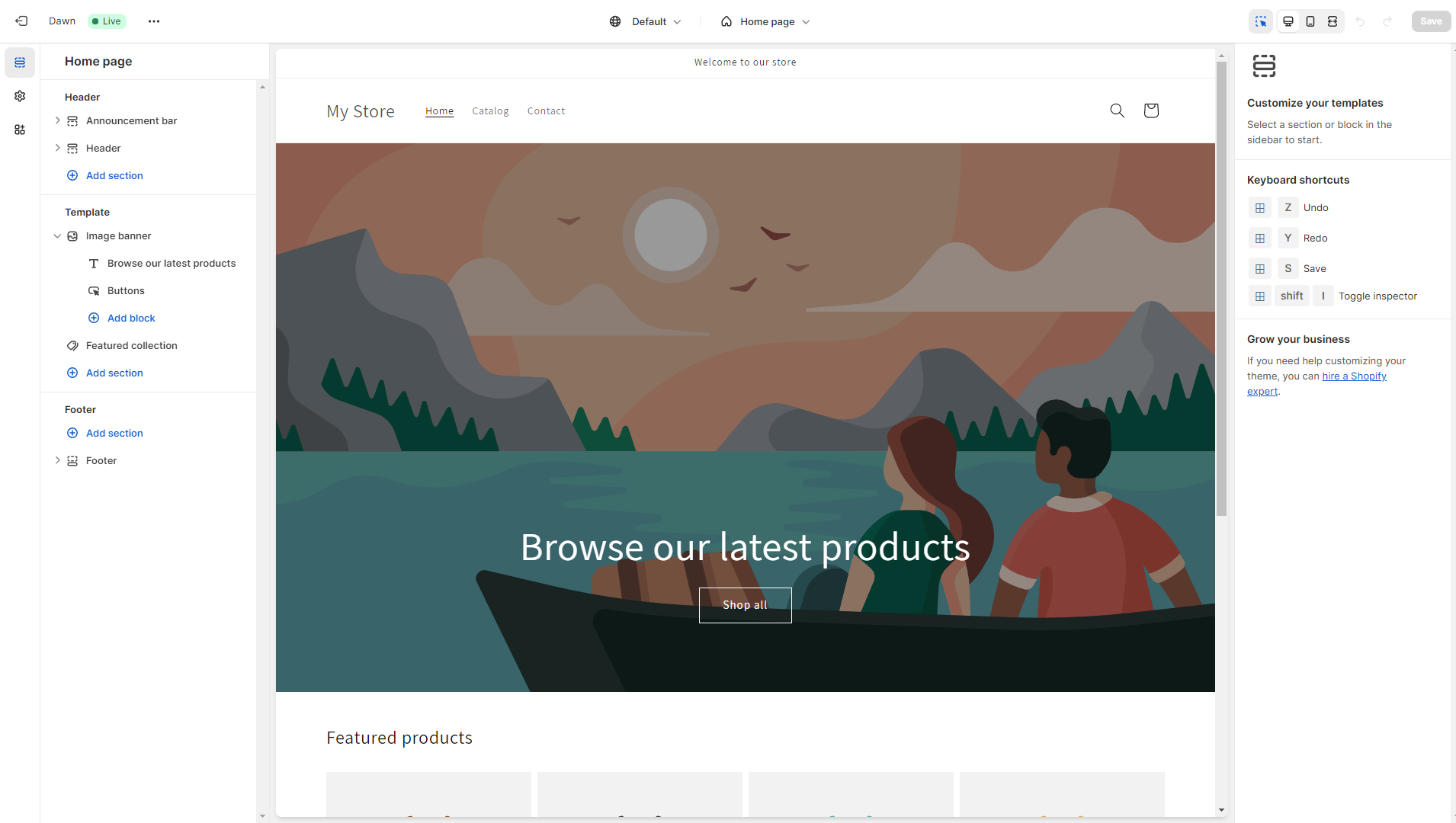
Mobirise’s editor, scoring 7.8, offers a user-friendly drag-and-drop interface that allows users to create responsive websites without needing to code. With its editor, users can easily add and customize various pre-designed blocks, such as headers, galleries, sliders, and contact forms, to their web pages. It also provides a wide range of themes and extensions that can be used to enhance the functionality and appearance of websites. However, its limitations include a lack of advanced features for professional web developers, such as in-depth customization through coding, and limited e-commerce capabilities, making it less suitable for complex, large-scale online stores or highly customized web projects.
Mobile editor/app
 8.0
8.0
 7.5
7.5
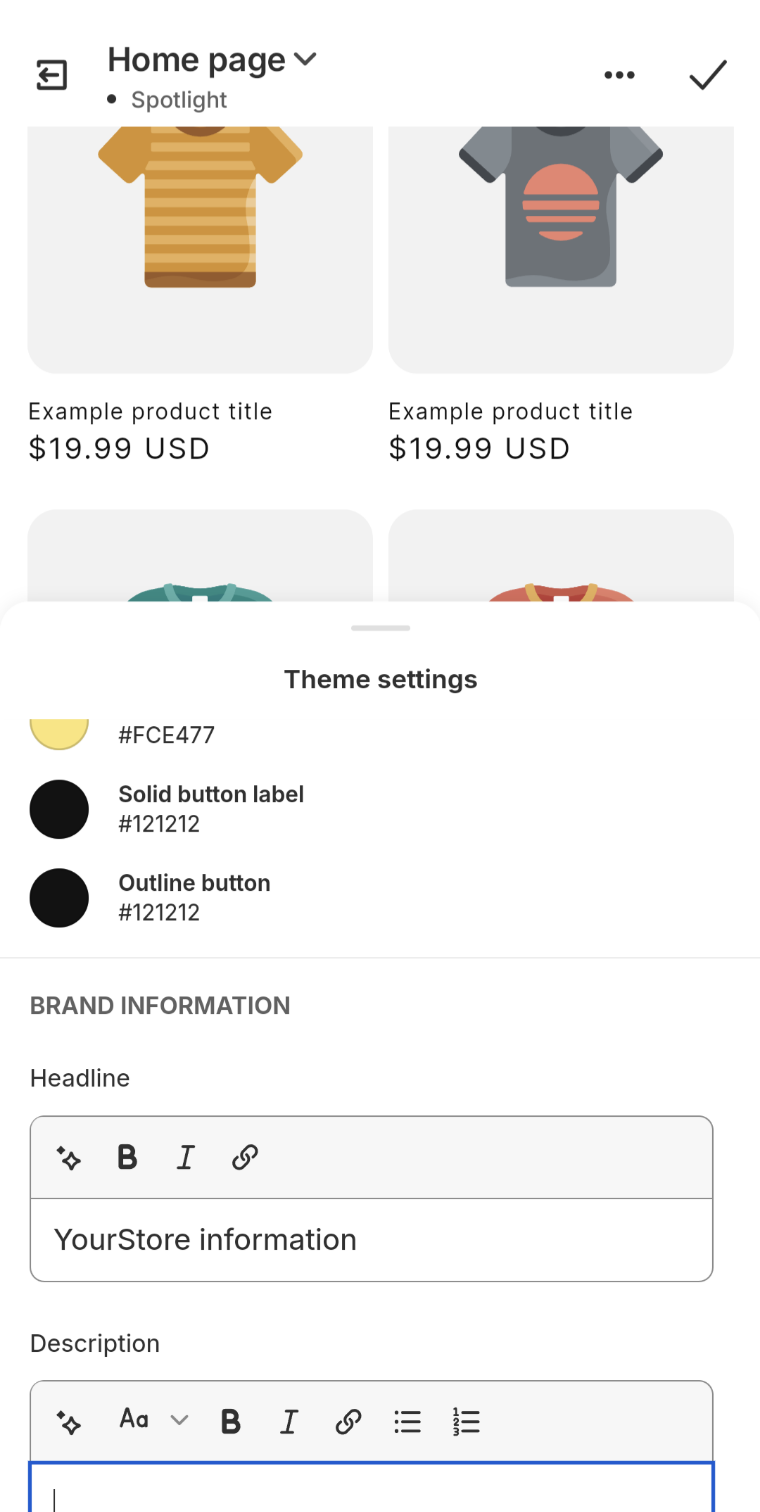
🏆
Winner: Shopify
. Both Shopify and Mobirise offer mobile editors, but they cater to different needs. Shopify’s mobile editor is designed for ecommerce, allowing users to manage their online stores directly from their mobile devices. This feature enables the addition, removal, editing, and rearrangement of content on the store’s website, offering convenient on-the-go adjustments to the store’s appearance and layout.
Mobirise, on the other hand, does have a mobile editor app, however it is not compatible with all mobile devices. This can limit its usability, especially for users who rely heavily on mobile devices for website management.
In summary, Shopify wins in this category due to its comprehensive mobile editor that caters to the needs of ecommerce businesses and its compatibility with all mobile devices.
Product testing options
Product Testing OptionsAssesses the options for trying out platform features before commitment.Score Components:
- Trial quality (40%): Extent and usefulness of the trial or free version.
- Feature accessibility (30%): How many features are available to test.
- Trial duration (20%): Length of the trial period.
- Ease of transition (10%): Smoothness of moving from trial to paid plans.
 8.1
8.1
 5.0
5.0
Overall Result
:
Shopify Wins
. Shopify scores 8.1 in product testing options, significantly higher than Mobirise’s 5.0. Shopify offers a 14-day free trial with access to all features, allowing users to fully test the platform before committing. On the other hand, Mobirise offers a free version but lacks a trial version and does not provide any options for testing premium features.

|

|
|
|---|---|---|
|
Free Plan |
No (14-day free trial) | Yes |
|
Trial Duration |
14 days | No trial version |
|
Testing Premium Features |
All features during free trial |
No possibilities for testing premium features |
Price
PriceLooks at the cost-effectiveness and value for money of each platform.Score Components:
- Plan value (40%): What each pricing tier offers.
- Transparency and clarity (30%): Clearness of pricing structures.
- Flexibility of plans (20%): Range of options to suit different budgets.
- Hidden costs (10%): Additional expenses not included in the plan.
 8.2
8.2
 8.6
8.6
While Shopify offers more comprehensive plans and features, Mobirise provides a more affordable and straightforward pricing structure, making it a good choice for users with basic website needs.

|

|
|
|---|---|---|
|
Free |
No offering at this amount. |
Free Plan ($0/month): Free for personal and commercial use. Ideal for creating websites, landing pages, online resumes, and portfolios. |
|
$0-$10 |
No offering at this amount. |
Mobirise Site ($2.42/month): Offers features like domain connection, SSL Certificate, unlimited hosting, advertisement removal, and DNS management. Ideal for basic website needs with a focus on simplicity and affordability. Value for price: 7.0 |
|
$20-$30 |
Shopify Basic ($29/month): Unlimited products, 2.9% + 30¢ card fee with Shopify payments, Extra 2% gateway fee without Shopify Payments, Abandoned cart recovery, Automated sales tax, Digital products, POS Integration, 2 staff accounts. Value for price: 8.0 |
No offering at this amount. |
|
$70-$80 |
Shopify Standard ($79/month): Lower card fees (2.6% + 30¢), Gift cards, Professional reports, 5 staff accounts. Value for price: 8.5 |
No offering at this amount. |
|
$200+ |
Advanced Shopify ($299/month): Lowest card fees (2.49% + 30¢), Advanced report builder, Real-time carrier shipping, Up to 15 staff accounts Value for price: 8.8 |
No offering at this amount. |
location. As a result in rare cases the prices displayed here can differ from the ones you see on their
websites.
Hosting quality
Hosting
qualityExamines the reliability and performance of the hosting solutions.Score Components:
- Uptime (40%): Consistency and reliability of website availability.
- Speed (30%): Loading times and performance.
- Bandwidth and storage (20%): Sufficiency of resources provided.
- Data centers (10%): Quality and distribution of hosting infrastructure.
 9.0
9.0
 2.0
2.0
🏆
Winner: Shopify
Shopify’s proprietary cloud-based hosting, with a 99.99% uptime guarantee and 5 global data centers, is designed to support high-traffic online stores. On the other hand, Mobirise, an offline website builder, provides limited information about its hosting features, uptime, and data centers. This lack of transparency results in a lower hosting quality score for Mobirise.

|

|
|
|---|---|---|
|
Do they offer hosting? |
Yes, included in all paid plans |
Yes, included in paid plan, however there’s limited information about their hosting features. |
|
Data Centers: |
5 globally: USA (Ashburn, Virginia; Santa Clara, California), Canada (Toronto, Ontario), Ireland (Dublin), and Singapore |
Mobirise does not disclose any information about it’s data centers |
|
Type of hosting: |
Proprietary cloud-based hosting |
Mobirise does not mention what types of hosting do they provide |
|
Uptime: |
99.99% |
Mobirise does not disclose any statistics on uptime |
|
Uptime Guarantee: |
Yes, 99.99% |
Mobirise does not have uptime guarantee |
Website Speed Optimization
Website Speed OptimizationEvaluates optimization of website loading timesScore Components:
- PageSpeed Score (30%): Google’s score indicating performance optimization.
- Loading Time (30%): The average time until a website is fully interactive.
- Mobile Optimization (15%): Optimization effectiveness for mobile devices.
- Resource Optimization (15%): Optimizing images, scripts, and other heavy resources.
- CDN Usage (10%): Use of CDN to enhance speed across geolocations.
 7.8
7.8
 5.0
5.0
🏆 Winner: Shopify
Shopify and Mobirise have different approaches to website speed optimization due to their different platform types. Shopify, being an ecommerce website builder and hosting platform, has a more structured approach, while Mobirise, being an offline website builder, relies on the users for speed optimization.

|

|
|
|---|---|---|
|
Focus |
App optimization, Google AMP |
User-driven optimization |
|
Performance Tools |
Google Lighthouse, PageSpeed Insights |
User-driven optimization |
|
Key Strategies |
App efficiency, Theme optimization |
User-driven optimization |
|
Load Times |
Varies widely, dependent on optimization |
Varies widely, dependent on optimization |
|
Page Speed Scores Range |
Scores vary; influenced by apps, images |
Varies widely, dependent on optimization |
|
Core Web Vitals Improvement |
Emphasis on LCP, FID, CLS improvements |
User-driven optimization |
Shopify’s approach to enhancing site speed includes app optimization by removing unneeded app code, conditionally loading apps, avoiding immediate pop-up displays, and incorporating app functionality directly into themes. This approach leverages Shopify’s fast servers and CDN network to boost load speed. Shopify also suggests utilizing Google AMP for faster mobile page loads, although with some design compromises. Analysis of three Shopify sites showed a range of Shopify speed scores from 14 to 75, Google PSI scores from 8 to 80, and load times varying from 10.6 seconds to 2.3 seconds. Continuous maintenance and optimization are essential for keeping Shopify stores fast.
On the other hand, Mobirise, being an offline website builder, relies on the users for speed optimization and Core Web Vital improvements. Both load times and Page speed scores vary widely, depending on the optimization and website complexity. As Mobirise is primarily an offline website builder, strategies for speed optimization are expected to be done by users. This gives users more control over their website’s performance, but also requires more technical knowledge and effort on their part.
Get a head start on website creation with AI
Create a custom website tailored to your business needs 10X faster with 10Web AI Website Builder!
Plugins and integrations
Plugins and integrationsMeasures the range and effectiveness of additional plugins and integrations.Score Components:
- Variety of options (40%): Range of available add-ons.
- Integration smoothness (30%): Ease of integrating plugins into the site.
- Quality of plugins (20%): Functionality and reliability of the options.
- Custom integration capabilities (10%): Support for custom or third-party integrations.
 8.7
8.7
 6.6
6.6
🏆 Winner: Shopify.
With a score of 8.7, Shopify outperforms Mobirise, which scores 6.6. Shopify offers over 8,000 apps in its App Store, covering a wide range of functionalities, and is particularly strong in ecommerce. Mobirise, while offering a broad array of plugins and integrations, falls short in comparison to Shopify’s extensive offerings.
However, Mobirise’s offline capabilities and focus on user-friendly design may make it a suitable choice for non-tech savvy users looking to create small to medium-sized websites.
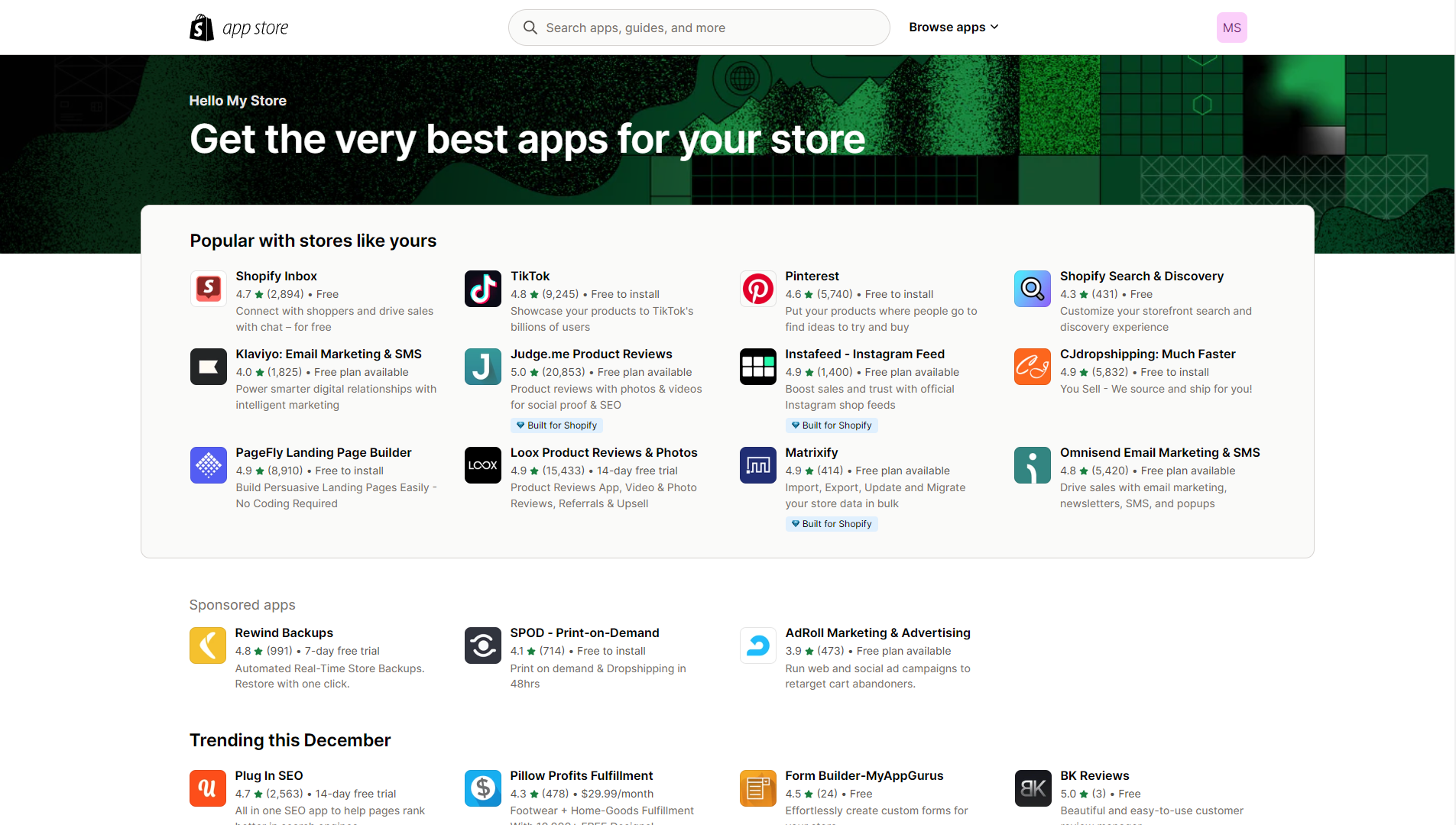
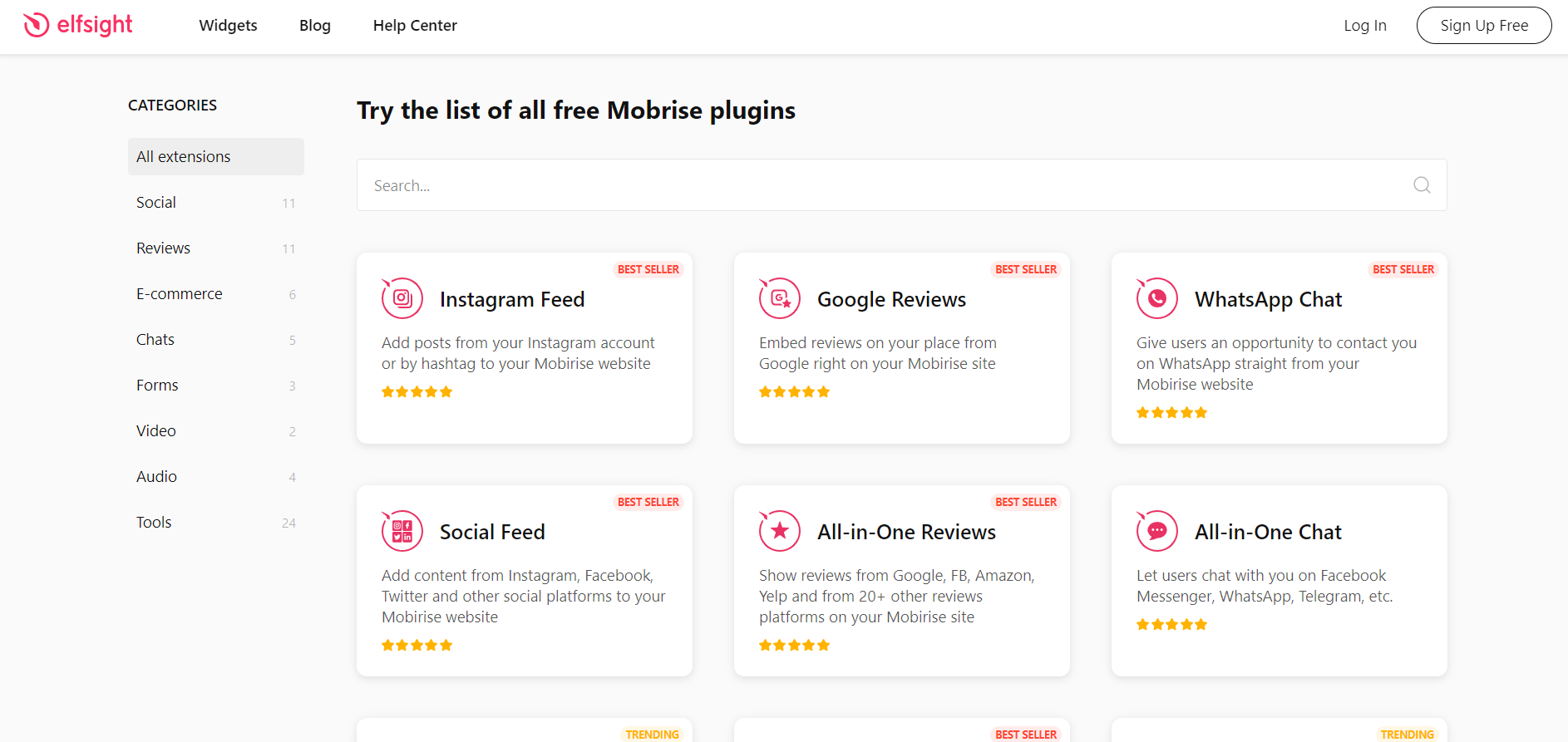
Marketing Features
Design FunctionalitiesRepresents how well each platform allows for creative design and customization of websites.Score Components:
- Template Variety (30%): Range and quality of design templates.
- Customization (30%): Flexibility and options for design alterations.
- User Interface (20%): Ease and intuitiveness of the design process.
- Responsiveness (10%): Adaptability to different devices and screen sizes.
- Innovation (10%): Unique design features and tools.
 8.8
8.8
 5.1
5.1
🏆
Overall Winner: Shopify
. Shopify stands out for its comprehensive and advanced marketing tools, especially in analytics and ad campaign management. Mobirise, while offering basic marketing features, lacks in email marketing and ad campaign management.

|

|
|
|---|---|---|
|
SEO Tools |
|
Basic SEO tools |
|
Email Marketing |
|
Through third party integrations |
|
Blogging |
|
Limited |
|
Social Media Integration |
Advanced integration for selling directly on social platforms |
|
|
Analytics and Reporting |
Detailed analytics for in-depth insights |
Through third party integrations |
|
Ads and Promotions |
Google Ads integration; sophisticated ad campaign management |
No |
Customer Support
Customer supportEvaluates the quality and availability of support options.Score Components:
- Response time (40%): Speed of support responses.
- Support quality (30%): Effectiveness and helpfulness of the support.
- Availability (20%): Range of support channels (phone, chat, email).
- Resource richness (10%): Quality of self-help and educational materials.
 8.6
8.6
 4.7
4.7
🏆 Winner: Shopify
. Comparing Shopify vs Mobirise, Shopify stands out with its comprehensive 24/7 customer support through chat, email, and phone. Shopify’s extensive community forums, clear tutorials, and valuable marketing blog further enhance the support experience, making it a reliable choice for businesses of all sizes. Additionally, Shopify offers dedicated enterprise support with a range of specialized resources.
Mobirise, on the other hand, provides customer support primarily through email, with responses typically within 24 hours. While Mobirise offers real-time support from within its software, it lacks the extensive support infrastructure and enterprise-level resources that Shopify provides. This makes Shopify the superior option for users seeking robust and readily available customer support.
Security
SecurityLooks at the platforms’ security measures and data protection.Score Components:
- Data protection (40%): Safeguards for user and customer data.
- SSL and encryption (30%): Implementation of secure connections.
- Compliance (20%): Adherence to industry security standards.
- Regular updates (10%): Frequency of security updates and patches.
 9.0
9.0
 6.6
6.6
🏆
Winner: Shopify
. Shopify’s security measures are more comprehensive and robust, offering secure infrastructure, encryption, and limited access. They comply with data privacy regulations, practice data minimization, and ensure user control and transparency. Additional security measures include two-factor authentication, regular audits, and a dedicated incident response team.
Although it may not offer the same level of specialized ecommerce security features as Shopify, Mobirise relies heavily on the user’s practices and the security measures of the chosen web hosting service. While it does offer some security measures, such as modifications to the .htaccess file for HTTPS enforcement and XSS protection, the responsibility for data protection largely falls on the user and the hosting service. This makes Shopify a more secure option for users who want a more hands-off approach to website security.
AI Capabilities
AI capabilitiesMeasures the effectiveness of AI-driven features and tools.Score Components:
- Automation efficiency (40%): Impact of AI on streamlining processes.
- Personalization (30%): AI-driven customization for users or customers.
- AI-Assisted design (20%): Role of AI in website design and functionality.
- Data analysis (10%): Use of AI in interpreting user data and analytics.
 7.9
7.9
 3.8
3.8

|

|
|
|---|---|---|
|
Personalized Design |
Shopify AI Builder offers personalized design suggestions |
Mobirise’s experimental AI builder tailors designs based on user prompts |
|
SEO Optimization |
AI-driven recommendations for better search engine visibility |
|
|
Customer Behavior Analysis |
Advanced analytics to understand customer preferences |
|
|
Sales Predictions |
AI-powered sales forecasting tools |
|
|
Inventory Management |
AI tools to assist in efficient inventory handling |
|
|
Content Generation |
AI-assisted content generation for various platforms |
|
🏆 Winner: Shopify
. Shopify, with a score of 7.9, utilizes AI to enhance the ecommerce experience. Its AI features focus on customer behavior analysis, personalized shopping experiences, inventory management, and sales predictions. Shopify’s AI also assists in content generation and SEO optimization.
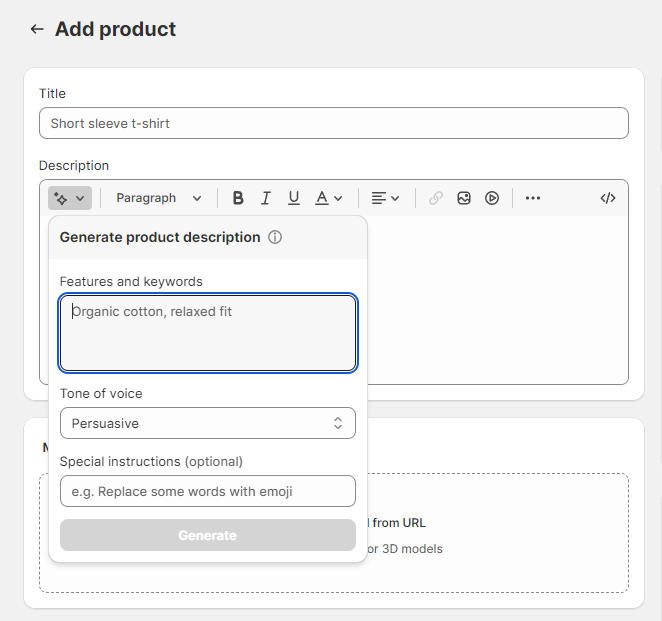
Mobirise, scoring 3.8, has limited AI capabilities. Its only notable feature is an experimental AI builder that generates website designs based on user prompts. However, it lacks the comprehensive AI features that Shopify offers.
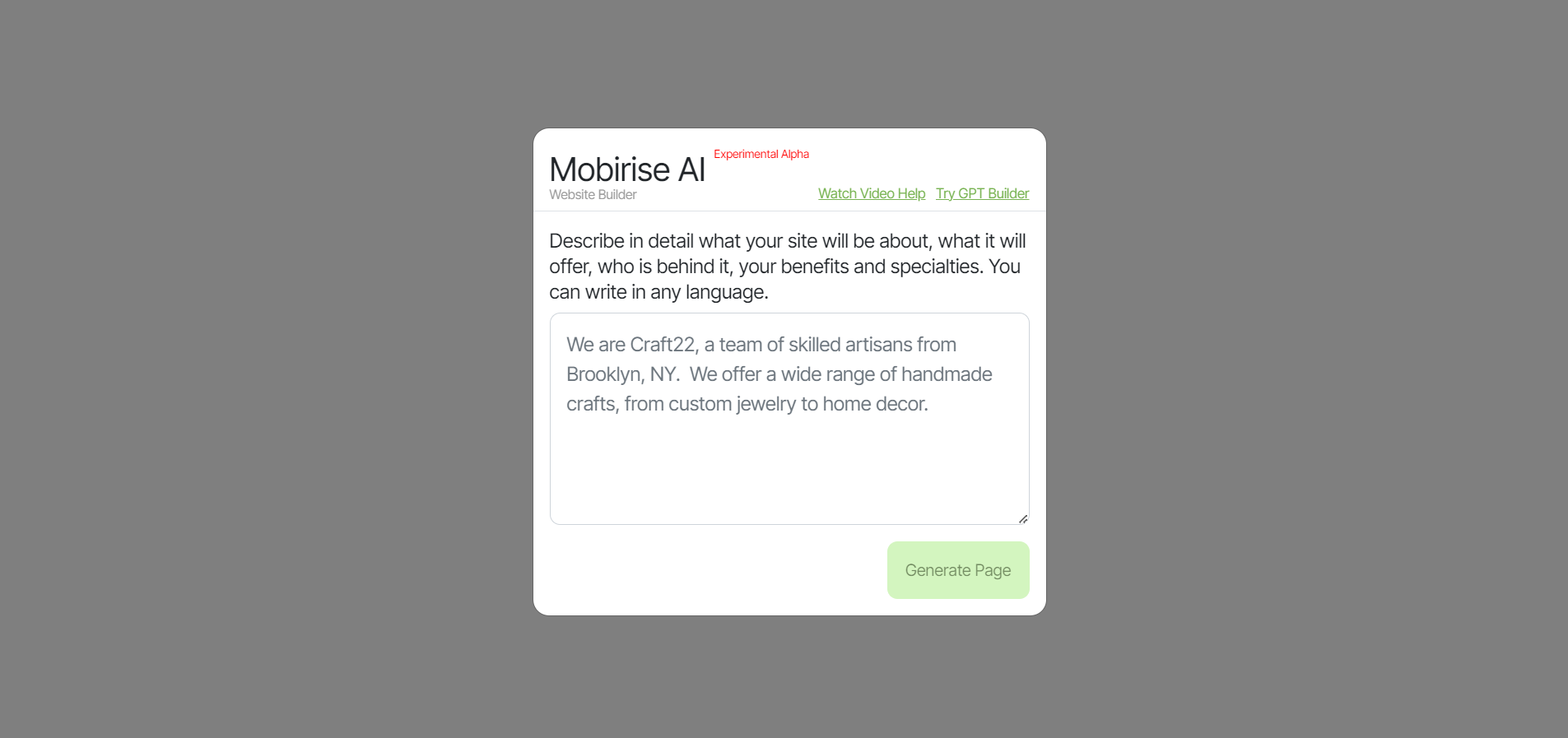
User Management
User ManagementAssesses the platforms’ capabilities in managing user roles, permissions, and accessibility.Score Components:
- Role Customization (40%): Flexibility in creating and defining user roles and
permissions. - Ease of Management (30%): User interface and tools for managing users.
- Access Control (20%): Effectiveness of access control measures for different user
levels. - Scalability (10%): Ability to manage a growing number of users efficiently.
 6.5
6.5
 2.0
2.0
🏆 Winner: Shopify
. Shopify’s user management system is more robust and flexible compared to Mobirise.
- Shopify allows for different roles with varying levels of access, including Store Owner, Staff, and Collaborator. This makes it easy to manage a team and control who has access to what.
- Mobirise, on the other hand, does not natively support multi-user collaboration in the same way that content management systems do. This can be a significant disadvantage for teams.
Shopify User Roles and Access Levels:
| Role | Description | Access Highlights |
|---|---|---|
| Store Owner | Full control over store | Manage products, orders, discounts, payments, apps, settings. Create and manage staff accounts. |
| Staff | Configurable access by owner | Add/edit products, manage orders, fulfill orders, manage customers, update content. Access level can be customized by the owner. |
| Collaborator | Limited access for external partners | View and manage specific sections like blog or product categories. Cannot access full store settings. |
Mobirise does not provide user roles and access levels.
Additional Features

|

|
|
|---|---|---|
|
SSL Certificate |
|
|
|
Custom Domain |
|
|
|
Free Custom Domain Included |
|
|
|
International Domains |
|
|
|
Mobile Responsive |
|
|
|
Page Speed |
|
|
|
Website Builder Mobile App |
|
|
|
Convert a Website To An App |
|
|
|
Website Analytics |
|
|
|
Multilingual Sites |
|
|
|
Multiple Users |
|
|
User Feedback
Shopify’s slightly higher rating on G2 Crowd can be largely attributed to its specialization in ecommerce. Its comprehensive features, ease of use, and robust customer support cater specifically to online businesses, leading to high user satisfaction among those seeking a dedicated ecommerce solution.
Users praise Mobirise for its user-friendly interface, ease of use, and quick website creation without coding. They appreciate its drag-and-drop feature, customizable templates, and built-in code editor. However, some mention concerns about pricing, limited free templates, and occasional compatibility issues. Overall, Mobirise is valued for its ability to swiftly prototype websites, particularly for those lacking coding skills, making it a go-to tool for small to medium-sized projects.
The making of this blog
We followed a clear, step-by-step process to write and research this article.
FAQ
Which platform is better for ecommerce, Shopify or Mobirise?
Can I use Mobirise for creating a simple informational website?
Is Shopify suitable for users without technical skills?
How do Shopify and Mobirise compare in terms of design and templates?
Which platform offers better customer support?
Are there any free plans available for Shopify or Mobirise?










